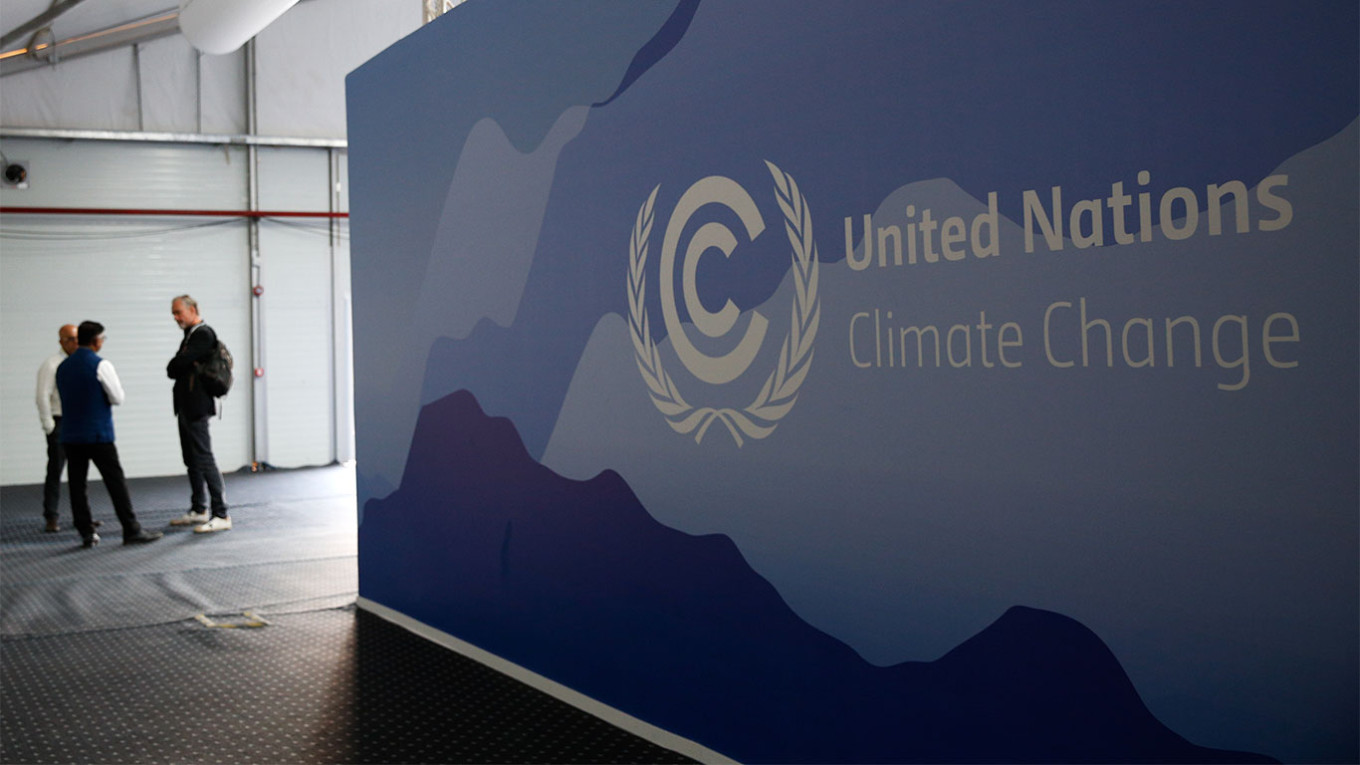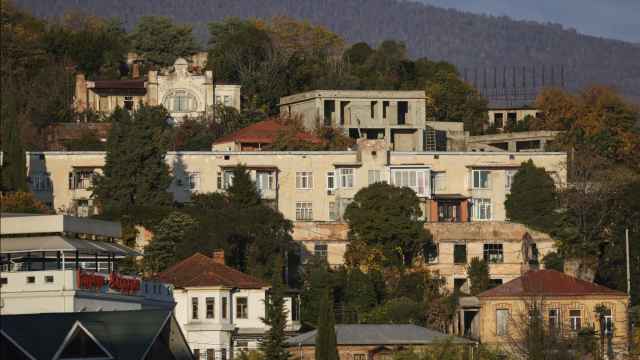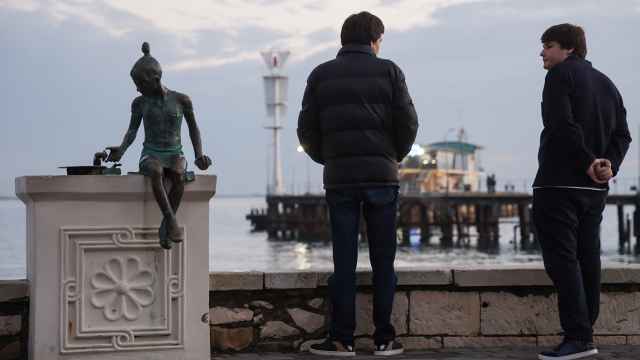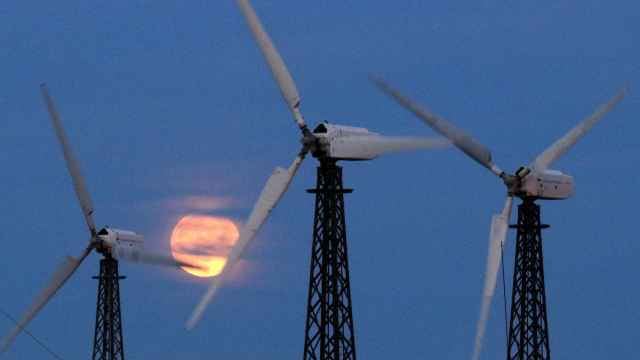Russian delegations to climate conferences have never been burdened with particularly high expectations, though even by that standard, the Russian showing at COP27 was pitiful.
Of course, there has never been a single political party in Russia serious about tackling climate change, and state TV continues to this day to deny basic climate science. According to them, the climate crisis doesn't exist, just as there is no war in Ukraine — there's just bad weather and a "special military operation."
The Russian delegation at COP27 in Sharm El-Sheikh spent two weeks lobbying for nuclear power as a fossil fuel alternative in an attempt to retain its stranglehold on global energy systems.
It also lobbied for the lifting of Western sanctions on Russia to allow it to join the fight against climate change, as if nothing else were going on in the world right now.
And if there was some hope this time last year that the urgent necessity of tackling the climate emergency would bring us together, the war has only served to expose further divides that make any form of coordinated action virtually impossible for the foreseeable future.
Climate conferences have for years striven to overlook political differences in the interests of creating an open space for dialogue, but this approach has unfortunately served to legitimize dictatorships, giving them a free pass on their human rights abuses in the name of meeting climate goals.
Russian activists were unable to attend the conference — most were busy protesting against the war, dealing with the paperwork of exile or just too wracked with guilt as the juggernaut of the war in Ukraine rolls on. Had they gone, however, any Russian activists voicing opinions critical of the Russian delegation would likely face years in prison upon their return.
Even though Putin has paid lip service to climate action when addressing Western audiences in the past, there is of course no place for any such thing in his ideology. Fossil fuel extraction is a Russian tradition on par with corruption and institutionalized racism, and the Kremlin has an interest in protecting all three.
Despite the obvious evil he represents, Putin retains enormous power and influence in Russia, not least as he decides where the country's billions of petrodollars are spent. Perhaps more surprisingly, Putin remains a significant figure on the international stage too, his reputation bolstered by the Russian propaganda machine, which is itself funded by oil and gas receipts.
Russian activists for years believed they could bring about change without resorting to radical means of protest, but it has now become clear just how ineffective that strategy was. "System change not climate change" is no mere slogan, until the Kremlin's use of the fossil fuel industry as a political weapon can be ended, systemic change appears impossible.
If the collective responsibility of Russians for the war in Ukraine is now broadly accepted, doesn't it then also follow that we all share collective responsibility for the climate crisis? As with the war, climate change is a systemic problem that cannot easily be tackled alone — the equivalent of attempting to bring down a police state with a single Molotov cocktail.
The question being asked by Ukrainians of Russians and the international community as a whole — where were you eight years ago when Putin occupied Crimea? — might also be asked about the climate crisis.
The first climate conference was held in Berlin in 1995, when the concentration of CO2 in the atmosphere was 360ppm. Since then, it has risen to 416ppm, and so-called "natural disasters" have become annual events. There have been 27 climate conferences since then, with very little real progress being made.
For years, climate justice and the need for the Global North to pay climate reparations have been marginalized topics raised by activists but never seriously discussed by mainstream politicians. Yet the case for reparations is hard to deny, just as it's inarguable that the war in Ukraine is criminal. After all, we have pictures and eyewitness accounts of the catastrophic recent flooding in Pakistan, just as we do the crimes of the Russian army in Bucha.
While COP27 did eventually establish a loss and damage fund to compensate developing countries for the effects of climate change, efforts to raise $100 billion for the Green Climate Fund, intended to assist developing nations in mitigating the effects of and adapting to climate change, failed.
Meanwhile, global emissions continue to rise each year along with the number of extreme weather events the world suffers. It's clear that the climate pledges made by world leaders in the face of mass demonstrations ahead of this year's conference were just hot air.
Younger people have the right to a secure future on our planet. For that, we must come up with a new ideology for the 21st century in which there is a place for us all, not just the privileged citizens of developed countries and a few dictators. The war in Ukraine has only served to multiply the already significant challenges posed by the climate crisis, and our task now is to at last address them seriously.
A Message from The Moscow Times:
Dear readers,
We are facing unprecedented challenges. Russia's Prosecutor General's Office has designated The Moscow Times as an "undesirable" organization, criminalizing our work and putting our staff at risk of prosecution. This follows our earlier unjust labeling as a "foreign agent."
These actions are direct attempts to silence independent journalism in Russia. The authorities claim our work "discredits the decisions of the Russian leadership." We see things differently: we strive to provide accurate, unbiased reporting on Russia.
We, the journalists of The Moscow Times, refuse to be silenced. But to continue our work, we need your help.
Your support, no matter how small, makes a world of difference. If you can, please support us monthly starting from just $2. It's quick to set up, and every contribution makes a significant impact.
By supporting The Moscow Times, you're defending open, independent journalism in the face of repression. Thank you for standing with us.
Remind me later.








